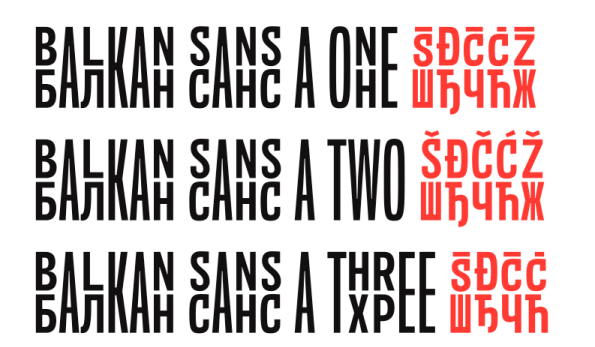Balkan trilogy
The tale of a Czech energy utility's failed regional ambitions.

The Balkan Trilogy by Olivia Manning is the story of a young English couple and their adventures during the Second World War. It begins in Bucharest in the autumn of 1939.
The Balkan trilogy of Martin Roman is the tale of a Czech energy utility and its ambitions to lead the region. It begins in Sofia in 2005, then moves on to Tirana in 2009, and ends in Bucharest in the autumn of 2013.
Ends?
Despite its majority shareholder’s rants against renewable energy, CEZ is the proud owner of the largest onshore wind park in Europe. The Fantanele & Cogealac wind farm in Romania boasts 600 MW of installed capacity.
According to its so-called ‘Country Attractiveness Indices’, released by the consulting arm of Ernst & Young just one month ago, Romania is one of the most attractive countries for wind energy investments in the world today. Whoopee! And well done CEZ!
Or perhaps not so well done.
Never trust consultants (I should know!), especially ones who come up with such hideous sounding titles for their research (‘country attractiveness indices’ is worse than Vogon poetry, for goodness sake!)
The Romanian government is now intent upon slashing support for renewable energy sources, especially wind. After the excitement in Albania and Bulgaria, with bricks and barricades, and tens of thousands of angry utility customers, the risk now faced by CEZ in Romania feels rather tame. But it will prove no less costly than the other Balkan debacles.
According to our calculations, Romania's plans could shave off as much as 100 million euro a year from CEZ’s Romanian-derived revenues (see here for details).
Greed and stupidity are never in short supply where Martin Roman, Daniel Benes and Vladimir Schmalz are concerned. The visceral contempt for renewable energy investors shown by the Czech government was never, of course, shared by the top management it appointed to lead CEZ. These top managers took part in the Klondike-like rush into renewables with an enthusiasm quite as wild as any Californian clean energy investment fund.

Balkan trio Martin Roman, Daniel Benes & Vladimir Schmalz in harmony...
As Business New Europe puts it, “renewable energy producers rushed into Romania in recent years to take advantage of the generous subsidies, boosting the country's wind power capacity to a staggering 1.8 gigawatts (GW).”
And now that it is all going pear-shaped in Bucharest, what can the Czech government do, or even say? Perhaps prime minister Necas should lambast his Romanian counterpart, Viktor Ponta, for retroactively slashing support for renewable energy, just as he lambasted his Bulgarian counterpart, Boyko Borisov, for seeking a political solution (he resigned) to the surge in energy prices caused by over generous subsidies for renewables.
And there again, given what Necas is saying and doing at home, perhaps he should not.

The Balkan Trilogy by Olivia Manning is the story of a young English couple and their adventures during the Second World War. It begins in Bucharest in the autumn of 1939.
The Balkan trilogy of Martin Roman is the tale of a Czech energy utility and its ambitions to lead the region. It begins in Sofia in 2005, then moves on to Tirana in 2009, and ends in Bucharest in the autumn of 2013.
Ends?
Despite its majority shareholder’s rants against renewable energy, CEZ is the proud owner of the largest onshore wind park in Europe. The Fantanele & Cogealac wind farm in Romania boasts 600 MW of installed capacity.
According to its so-called ‘Country Attractiveness Indices’, released by the consulting arm of Ernst & Young just one month ago, Romania is one of the most attractive countries for wind energy investments in the world today. Whoopee! And well done CEZ!
Or perhaps not so well done.
Never trust consultants (I should know!), especially ones who come up with such hideous sounding titles for their research (‘country attractiveness indices’ is worse than Vogon poetry, for goodness sake!)
The Romanian government is now intent upon slashing support for renewable energy sources, especially wind. After the excitement in Albania and Bulgaria, with bricks and barricades, and tens of thousands of angry utility customers, the risk now faced by CEZ in Romania feels rather tame. But it will prove no less costly than the other Balkan debacles.
According to our calculations, Romania's plans could shave off as much as 100 million euro a year from CEZ’s Romanian-derived revenues (see here for details).
Greed and stupidity are never in short supply where Martin Roman, Daniel Benes and Vladimir Schmalz are concerned. The visceral contempt for renewable energy investors shown by the Czech government was never, of course, shared by the top management it appointed to lead CEZ. These top managers took part in the Klondike-like rush into renewables with an enthusiasm quite as wild as any Californian clean energy investment fund.

Balkan trio Martin Roman, Daniel Benes & Vladimir Schmalz in harmony...
As Business New Europe puts it, “renewable energy producers rushed into Romania in recent years to take advantage of the generous subsidies, boosting the country's wind power capacity to a staggering 1.8 gigawatts (GW).”
And now that it is all going pear-shaped in Bucharest, what can the Czech government do, or even say? Perhaps prime minister Necas should lambast his Romanian counterpart, Viktor Ponta, for retroactively slashing support for renewable energy, just as he lambasted his Bulgarian counterpart, Boyko Borisov, for seeking a political solution (he resigned) to the surge in energy prices caused by over generous subsidies for renewables.
And there again, given what Necas is saying and doing at home, perhaps he should not.

 Fiala II slibuje platy jako v Německu, babišuje a trumpuje. Ale není Babiš ani Trump
Fiala II slibuje platy jako v Německu, babišuje a trumpuje. Ale není Babiš ani Trump Bezpodmínečná podpora Ukrajiny je klíč k míru. Američané to už pochopili
Bezpodmínečná podpora Ukrajiny je klíč k míru. Američané to už pochopili Klaus tvrdí, že se blížíme k 50. letům, k totalitě. Je to lež a nebezpečná manipulace
Klaus tvrdí, že se blížíme k 50. letům, k totalitě. Je to lež a nebezpečná manipulace V roce 1989 byl vzorem Havel, v roce 2024 je elitou Babiš. Hodnoty se vypařují
V roce 1989 byl vzorem Havel, v roce 2024 je elitou Babiš. Hodnoty se vypařují Co od nás odešlo s Karlem Schwarzenbergem
Co od nás odešlo s Karlem Schwarzenbergem

